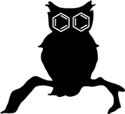Novel therapeutic agents for herpes simplex and cytomegaloviruses
Viruses from the human herpesvirus family are estimated to infect 90% of the adult population worldwide, and are responsible for lifelong debilitating and cogenital infections. Some members of this family are associated with human cancers and age-related cognitive decline.

The human herpesviruses are responsible for lifelong debilitating and congenital infections...
for lifelong debilitating and congenital infections, significant infection risk in immunocompromised patients, and elevated risk of developing viral-associated malignancies. The herpesvirus family is comprised of three major classes: alpha, beta and gamma that diverge in tissue tropism and many aspects of their interactions with their hosts.
The human alpha herpesviruses include human herpes simplex viruses 1 and 2 (HSV-1 and HSV-2) and varicella-zoster virus (VZV). HSV infections are one of the most widespread infectious diseases in the world, affecting between 60 and 95% of the population. HSV-1 and -2 are associated with a wide range of clinical manifestations including cold sores, genital lesions, kerititis, corneal blindness, encephalitis and severe neonatal infections. VZV causes chickenpox and shingles, but can also be associated with viral encephalitis and a painful condition known as postherpetic neuralgia.
The human beta herpesviruses, HCMV, is associated with mononucleosis, retinitis, pneumonia, CNS disease and hepatitis in immunocompetent individuals; however, HCMV can cause significant morbidity and mortality especially in patients who receive a hematopoetic stem cell or a solid organ transplant. HCMV infection during pregnancy is an important cause of disseminated neonatal infection with significant morbidity in infants.
The gamma herpesviruses include Epstein-Barr virus (EBV) and Kaposis sarcoma associated herpesvirus (KSHV). These viruses are associated with diseases including mononucleosis and malignancies such as B-cell lymphomas, nasopharyngeal carcinoma and Kaposis Sarcoma. Kaposis Sarcoma is now recognized as one of the most common cancers in many sub-Saharan African countries. Human herpesviruses are associated with significant disease, underscoring the need for safe and effective antiviral strategies.
Despite the wide-spread nature of these viral pathogens, there are relatively few classes of safe and effective therapeutics in clinical use.
DNA polymerase inhibitors, most notably the nucleoside analog acyclovir and its prodrug valacyclovir (Valtrex), are the mainstay of current therapies. While Valtrex is very effective for managing HSV1/2 in immunocompetent individuals, there is a sharp increase in the onset of resistance in immunocompromised patients leading to frequent and severe reactivations. Valtrex is less active against VZV than HSV but remains the first-line treatment option for this indication. EBV, KSHV and CMV are far less sensitive to the action of Valtrex and as such it is rarely used to treat these infections. The poor responsiveness of CMV and other viruses to acyclovir led to the development of the more potent polymerase inhibitors ganciclovir/valganciclovir that are used for both prophylaxis and lytic CMV infections.However, this use of these agents in patients is often discontinued because of high cytotoxicity. Foscarnet is an injectable non-nucleoside antiviral that is often the recommended second-line agent but also suffers dose-limiting nephrotoxicity and its use is often discontinued.
While there are a handful of other nucleoside analogs, these often do not have a desirable safety and efficacy profile and are only narrowly used. There is clearly a compelling need for the development of safer and more efficacious agents to treat these wide-spread viral pathogens.
Current goals:
Develop novel agents for treatment of HSV and HCMV Infections.

